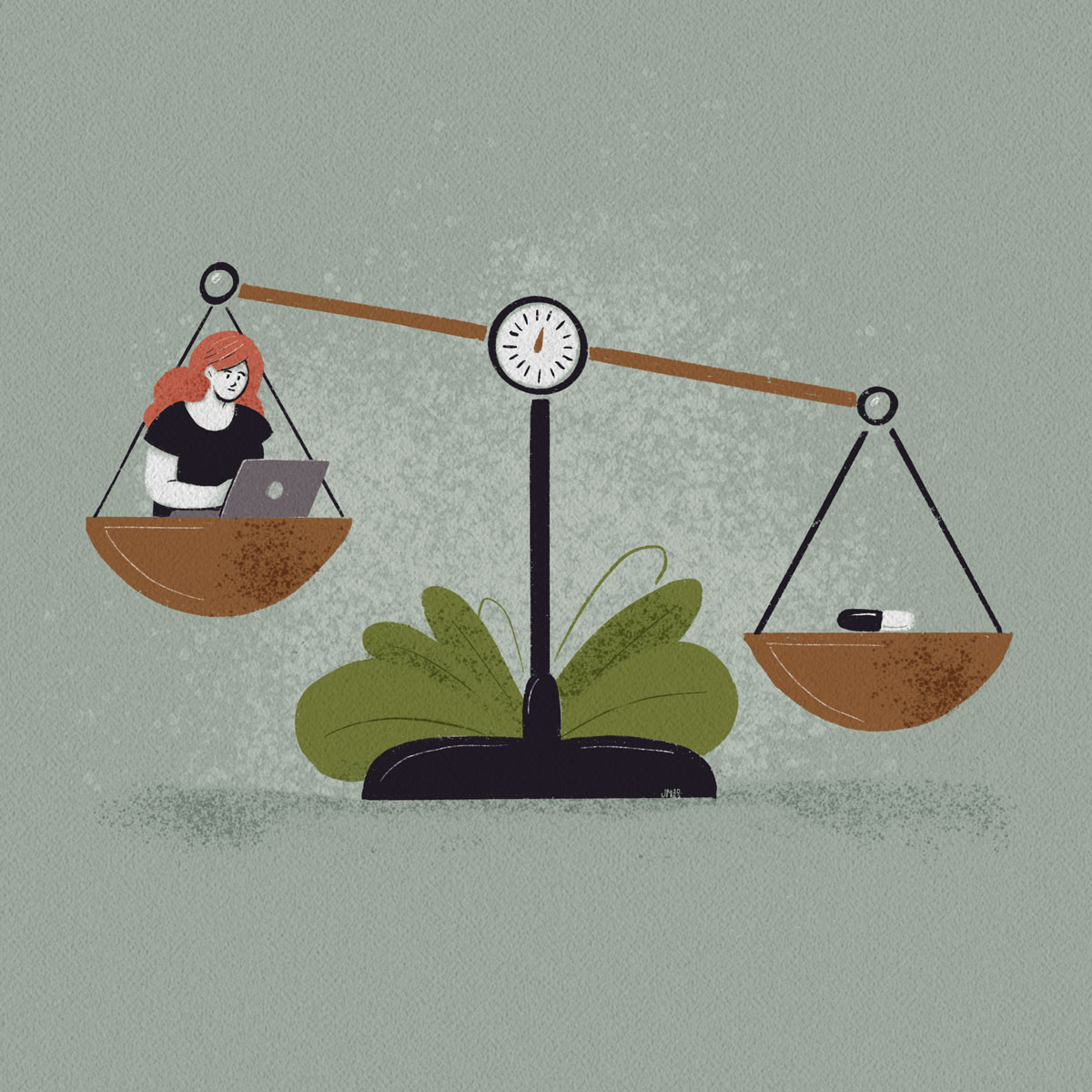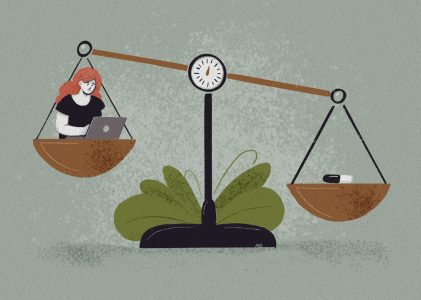How to tell if your depression treatment is working and what to do if it isn’t.
Over the past few weeks, you may have seen a flurry of discussion about the role that serotonin may or may not play in causing and treating depression. You may have read headlines like, “The ‘Low Serotonin’ Theory of Depression Just Got Debunked” or “New study challenges value of antidepressants”.
Friends or family might have shared social media posts warning you away from taking depression medication. You may have even heard Tucker Carlson imply that doctors should stop prescribing common antidepressants known as SSRIs (selective serotonin reuptake inhibitors).
But hold on a minute. Before you throw your antidepressant in the trash, read on to better understand the controversy, the role that antidepressant medications play in treating depression, and what you can do if your antidepressant truly isn’t working.

What’s all the fuss about?
The current SSRI controversy stems from a recently published research paper by Joanna Moncrieff and colleagues that challenges the once-popular theory that reduced serotonin causes depression. This study reviewed previously collected data from hundreds of thousands of people and found no evidence that low levels of serotonin cause depression.
This finding may sound controversial, but it isn’t. Researchers and clinicians have known for a long time that serotonin levels aren’t the sole cause of depression.
What is controversial is the authors’ suggestion that SSRIs may do more harm than good in treating depression. Critics of this paper say the authors made this claim without examining the efficacy or mechanisms of SSRIs.
To better understand these issues, let’s cover some background information about serotonin and theories of depression.
What is serotonin?
Serotonin is a neurotransmitter that relays messages between nerve cells in your brain and throughout your body. These messages tell your body how to work.
Serotonin is involved in a wide array of functions. It plays a role in certain emotions and mental states, such as happiness, calmness and focus. It also regulates your body temperature, sexual behavior, sleep and hunger.
What is the serotonin theory of depression?
This theory suggests that reduced serotonin in the brain causes depression.
Scientists developed this hypothesis after noticing an interesting side-effect of iproniazid (developed to treat tuberculosis) and imipramine (developed as an antihistamine). These drugs seemed to make some patients feel happier and improve symptoms commonly related to depression [1]. These observations led doctors to prescribe iproniazid and imipramine as the first antidepressants.
What these drugs had in common was that they both were shown to increase levels of serotonin in the brain. Given that connection, it was no great leap to imagine that depression might be caused by low levels of serotonin. This gave rise to the idea that depression is caused by a chemical imbalance.
Researchers began trying to validate this idea, attempting to show that patients with depression had lower levels of serotonin in their blood, cerebrospinal fluid and other body fluids. However, the findings were unreliable, and more recent studies have shown that this hypothesis isn’t supported.
This process is typical in science and medicine. We observe that a drug works for a particular ailment and then we endeavor to explain why it works. For something as complicated and varied as depression, it isn’t surprising that we got that explanation wrong or that our explanation was too simplistic. What’s important is that we keep testing and evolving our hypotheses.
How did this theory get so widespread?
Pharmaceutical companies latched onto the “chemical imbalance” theory to market a new class of antidepressants—the SSRIs (e.g., Prozac, Zoloft, Lexapro, and many others). This simple, clear (but misleading) messaging—that you’re depressed because your brain chemistry is out of whack—was much easier for people to understand and accept than a much more complicated, but more accurate, message.
Many medical practitioners also promote this idea to their patients. Some do so out of ignorance. Others may believe that the ends justify the means—that helping a patient feel comfortable accepting treatment for depression is more important than providing an accurate explanation of how the treatment works.
The fact that SSRIs do work for many people is justification enough for continuing to use them. As many have noted, you take ibuprofen for a headache because it works, not because it fixes an ibuprofen deficiency.
The takeaways from this study
The most important revelation from the Moncreiff and colleagues study is that the chemical imbalance theory of depression persisted in popular culture and certain medical spaces for long after the scientific community took issue with it.
The results of this study don’t change the fact that antidepressants, including SSRIs, help lots of people. Depression is a diverse disorder and far from one size fits all. We use treatments because they work, regardless of underlying theories of why they work that may change over time.
At the same time, antidepressants don’t work for about 30% of people who take them. How do you know if you’re one of those people and what should you do if you are?
Is your antidepressant working?
It’s important to give your antidepressant a fair chance to work. A trial of four to eight weeks at the full therapeutic dose is required to gauge whether or not it’s treating your symptoms effectively. If you’re still experiencing symptoms after eight weeks, make sure to tell the provider who manages your medicine.
We’ve designed this quiz to help you determine whether your symptoms have improved, stayed the same or worsened since taking your antidepressant. This is not a diagnostic quiz and is intended for your informational purposes only.
Treatment-Resistant Depression (TRD)
What is TRD?
If you suffer from moderate to severe depression that doesn’t get better even after you’ve tried two antidepressants from different medication classes, you may have treatment-resistant depression. For people with TRD, antidepressants may not help at all, or symptoms may improve, but then keep coming back.
Fortunately, new treatment options are available for people with TRD, including Spravato® and transcranial magnetic stimulation (TMS). While these two options work in very different ways, they share in bringing hope to those for whom traditional antidepressants haven’t worked.
What is Spravato®?
Spravato® (esketamine) is a nasal spray derived from the drug ketamine, which has long been used by surgeons and veterinarians for its potent painkilling and sedative properties. In the 2000s, medical professionals began observing and researching the ability of low doses of ketamine to quickly relieve depression and suicidal thoughts. This led to the formulation of Spravato® and its approval by the FDA in 2019 for treating adults with depression that is treatment-resistant or accompanied by suicidal thoughts.
How Does Spravato® Work?
Spravato® works in an entirely different way than most currently prescribed antidepressants. Unlike traditional antidepressants, Spravato® operates on glutamate – a chemical messenger that regulates your nervous system and performs a significant role in your brain’s response to experiences. Neuroimaging shows that Spravato® spurs a release of glutamate in the prefrontal cortex. Researchers suspect that this surge activates downstream receptors, which then trigger new synapses to grow. This growth may increase communication between your brain cells and positively affect your mood.
Another important difference from traditional antidepressants is that Spravato® works almost instantly, instead of taking several weeks or longer to improve symptoms. These fast-acting effects make Spravato® especially useful if you’re in crisis and require a fast-acting treatment.
What Is Spravato® Treatment Like?
On treatment days, you will self-administer Spravato® nasal spray at the Athena Care clinic under medical supervision. After taking your dose, you will relax at the clinic for at least two hours to check for possible side effects, such as a temporary increase in blood pressure , dissociation, and sedation. Your care provider will let you know when it’s okay to leave the clinic. You won’t be able to drive or operate heavy machinery until the following day, so you’ll need to plan for rides on treatment days.
Treatment generally includes two sessions per week for the first month and one session per week during the second month. At this point, you’ll work with your Spravato treatment team to determine if any additional Spravato treatments are necessary.
Spravato® is prescribed along with a daily oral antidepressant.
Learn more about Spravato® on Athena Care’s information page or visit Janssen Pharmaceutical’s marketing page.
What is Transcranial Magnetic Stimulation?
Transcranial Magnetic Stimulation (TMS) is an FDA-cleared treatment for depression that does not require surgery or medication. It is safe, effective and well-tolerated by most patients, without the side effects associated with typical psychiatric medications.
How Does TMS Work?
While you relax in a chair, the TMS magnet gently sits on your head and sends low-dose magnetic pulses to specific parts of your brain involved in mood regulation. These magnetic pulses pass through your skull and into your brain without distortion, which allows your doctor to focus the stimulation on areas that have likely been underactive during depression (the prefrontal circuit). You remain awake and alert throughout the session.
What Is TMS Treatment Like?
TMS treatments usually occur 5 days per week for 6 weeks and each session lasts about 20 minutes.
During the treatment session, you can sit comfortably and read, watch TV or use a handheld electronic device. You’ll hear a clicking sound and feel a rapid tapping sensation as the magnetic pulses are released.
You can drive yourself home after the treatment and resume your normal activities.
To learn more about TMS, visit Athena Care’s information page or the NeuroMed website.
Next Steps
If you or someone you love struggles with depression that isn’t responding to antidepressant medication, talk to your doctor about the possibility that you might have treatment-resistant depression.
For mental health treatment in Tennesse, including TMS and Spravato®, contact Athena Care today.
One of our Care Coordinators will help you get the help you need.

Rachel Swan, MS
Editor
Rachel has a Masters of Science in Clinical Psychology from Vanderbilt University, where she spent 16 years as a Research Analyst in the Psychology and Human Development Department.


